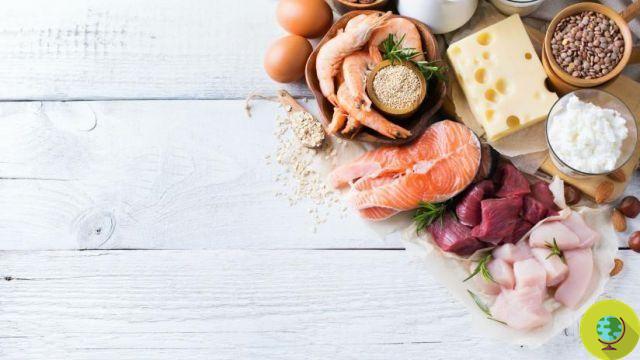
With high-protein diets it is true you lose weight but there are also risks, and not insignificant, for general health.
Don't store avocado like this: it's dangerous
In recent years, the high-protein diets, especially Dukan, thanks to which many people have actually lost weight. But in the face of what risks and contraindications is it possible to follow a high-protein diet?
Let's start by saying that the human body needs different nutrients to function at its best (carbohydrates, proteins and fats) which must be consumed in the right proportions everyday. These proportions may vary in part according to the constitution of the person and the activities he performs during the day but in any case the highest percentage of food introduced should be reserved for carbohydrates, followed by proteins and fats.
What does the high-protein diet propose instead? To strongly limit carbohydrates in the face of a very unbalanced diet in favor of proteins, especially of animal origin. It must be said that in this way you actually lose weight as proteins increase metabolism and stimulate lipolysis (i.e. the breakdown and elimination of fats).
The problem however is that the body still needs carbohydrates, as they provide the energy necessary for all its functions. If these are not taken with food, the body will be forced to attack the glucose reserves found in particular in the liver and muscles, and which are used in cases of urgency, when energy is needed quickly and one cannot wait to get it from new food consumed.
A negative effect of high-protein diets is then that of particularly straining the kidneys. Introducing too many proteins, in fact, leads to the production of a lot of uric acid which, if not properly disposed of, can damage the kidneys by forming stones for example (this is why when you start a high-protein diet it is recommended to drink a lot). The waste of protein metabolism are then difficult to dispose of also for the liver that in the long run can get intoxicated and reflexively cause various disorders even in distant areas of the body. They should therefore categorically avoid undergoing a high-protein diet for people who already suffer from kidney and / or liver problems.
Then there is the possibility that once the high-protein diet with which excellent results in weight loss have been obtained has been interrupted, returning to eating normally may incur the so-called yo-yo effect, that is, take back all the lost kilos. This is because an organism subjected to a carbohydrate-deprived diet that has affected the glucose resources, then tends to request back what has been removed, making the desire to eat (perhaps even exaggerating) return those foods that were previously almost completely eliminated.
Finally, another thing not to be underestimated is the fact that this diet, if not well balanced at least with fiber, can lead to constipation problems. And a bowel that fails to eliminate toxins well for long periods can lead to various problems.
Basically the high-protein diet is an unbalanced diet which, as often happens, offers a simple and quick solution to lose weight but forgets to make a longer-term health choice that provides people with the tools to stay fit but also healthy at the same time.
If you just can't avoid experimenting with a high-protein diet, it would still be da avoid DIY, because it is a diet that in any case strains and stresses the organism and which can only be maintained for a limited period of time. It is therefore the case that a doctor or a nutritionist can monitor the situation and then guide you at the end of the diet towards a balanced diet that includes all the categories of necessary foods.
Read also:
Proteins: meat and cheeses as dangerous as smoking
Red meat: Doubles the risk of heart attacks, diabetes and cancer


























